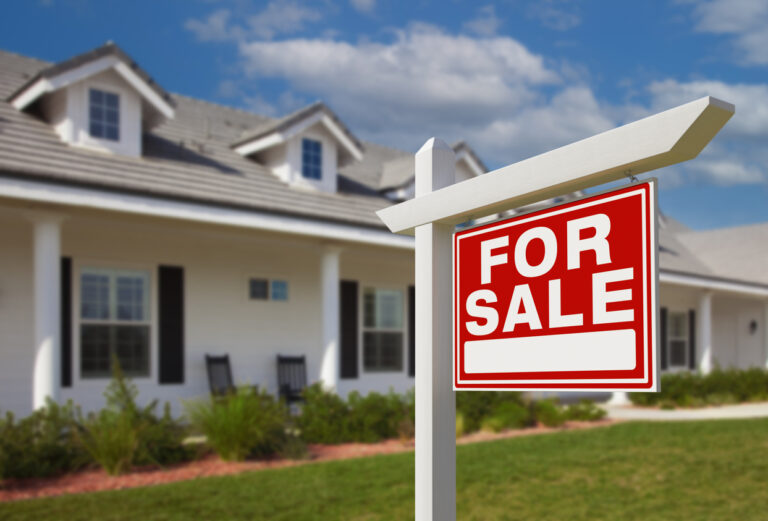Have you ever noticed that when some properties are listed for sale, they immediately receive multiple offers and sell virtually overnight, while other homes linger on the market for months and fail to generate any serious interest?
Due to Bermuda’s small size and limited number of dwellings, you might be tempted to think that any property on the island would sell easily but even when the market is “hot” nothing could be further from the truth.
A home’s location, condition, pricing, seller’s attitude and even the behavior of existing tenants can all influence the amount of time that it takes to attract and secure a qualified buyer.
I sat down with two of Bermuda’s most experienced realtors, Cesa Edwards of Bermuda Longtail Real Estate Ltd. and Judy Maybury of JBM Realty & Associates, to get their insights regarding some of the most common reasons that homes sit on the market and how to make these properties more appealing to potential purchasers.
How has the Internet impacted Home Sales in Bermuda?
Thanks to the internet, both ladies agree that today’s purchasers are savvier than ever before.
Gone are the days when the only way to gather any accurate information on a property was to make an appointment to view it in person. Potential purchasers can now tour the inside of a home from the end of a laptop and sellers need to ensure that their virtual listing contains high quality images that accurately depict the features of a property as well as a detailed written description.
Failing to create a compelling online listing can dissuade potential purchasers from ever going to see a property – costing the seller both time and money.
How Does the Asking Price Influence the Likelihood that a Property Will Sell?
An overpriced home, no matter how appealing, will struggle to attract buyers.
These days even cash buyers will usually pay for an appraisal to determine a property’s fair market value and listing a home with an inflated asking price can cause a deal to fall through – either because the purchaser walked away, or because the bank refused to mortgage a property for more than it was actually worth.
“Everywhere in the world real estate is all about price,” says Mrs. Maybury. “It is critical to price a house in alignment with the current market conditions and comparable sales.”
Mrs. Edwards agrees. “It might be tempting to put a high listing price on a property to see what happens, but sellers need to ask themselves if they would ever agree to purchase that property at the price and terms they are asking for,” she said.
“Not only does an unrealistic asking price increase the amount of time it takes to secure a sale, but a subsequent price reduction can actually make some buyers suspicious that there is something wrong with the property,” Mrs. Maybury said.
OTHER COMMON REASONS THAT HOMES DO NOT SELL
There are lots of reasons that a home can be challenging to sell including the density of the neighbourhood, proximity to a major road, exposure during hurricanes, privacy and safety concerns, distance from Hamilton and proximity of amenities such as grocery stores and transportation.
While these location related challenges are not things that you can really change about a property that you are selling – there are many other fixable issues that can make a property less desirable if not addressed.
Minor flaws and peeling paint can make a big difference in how a property is perceived and they need to be remedied before a home is put on the market.
Even small issues such as mildew and clutter can be very off-putting to a buyer who is seeking a “move-in ready” property.
“Home staging is not necessary in every situation,” says Mrs. Edwards, “but ensuring that a property is clean and free of too many personal possessions can make it easier for a purchaser to visualize themselves living there.”
“Especially if a property is vacant, it is very important to cut the grass and maintain the landscaping – both to make a property feel welcoming and to make it easier for potential buyers and their agents to gain access to the property,” says Mrs. Maybury.
How Important is the Marketing Strategy?
Effective marketing can make all the difference in selling a challenging property.
“In Bermuda we are experiencing a seller’s market in some price ranges, but we also have a buyer’s market in certain other price ranges and situations,” says Mrs. Maybury.
Both women agreed that it is important to make sure that your marketing is directed toward the right audience because what one person might consider a challenge, might well be a desired feature for the right buyer. While city living, for example, might be off-putting to some people due to noise or congestion, it might be the ideal lifestyle for a young professional who wants to walk to work and enjoys eating out.
How Important is it to Choose the Right Realtor?
Particularly if you are selling a challenging property, you need to make sure that you are working with an experienced realtor who has a good business reputation with colleagues, banks, lawyers, and property surveyors alike.
Tactfulness and professionalism are also essential.
“Every real estate transaction is like a marriage – in order for things to work, neither party can feel compromised, neglected or disrespected,” says Mrs. Edwards. “Both parties need to leave the table feeling satisfied in order for the sale to go through and this is particularly true when you are selling a challenging property.”
Selling a challenging property requires a strategic approach that considers all the factors influencing the sale.
By thoroughly evaluating the property, setting a realistic price, creating a strategic marketing plan, and effectively networking with other real estate professionals, even the most “unsellable” homes can find the right buyer and transition from sitting on the market to sold.

